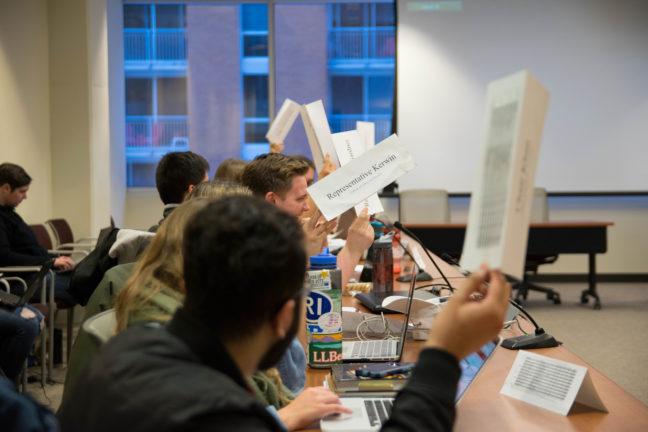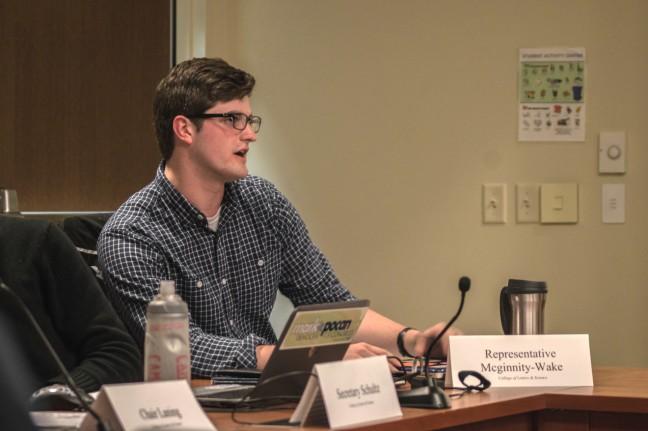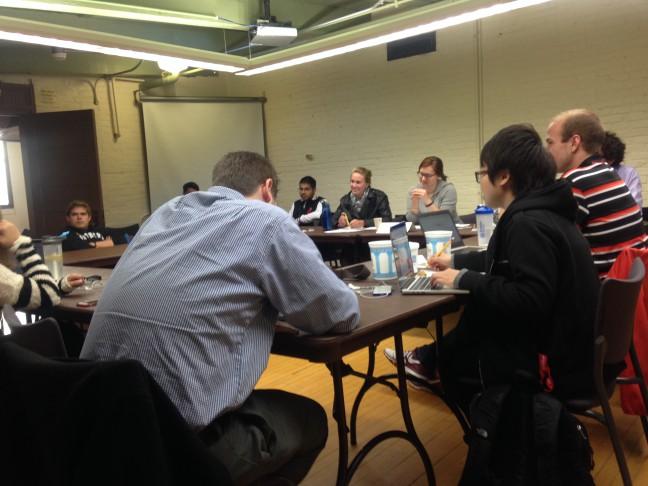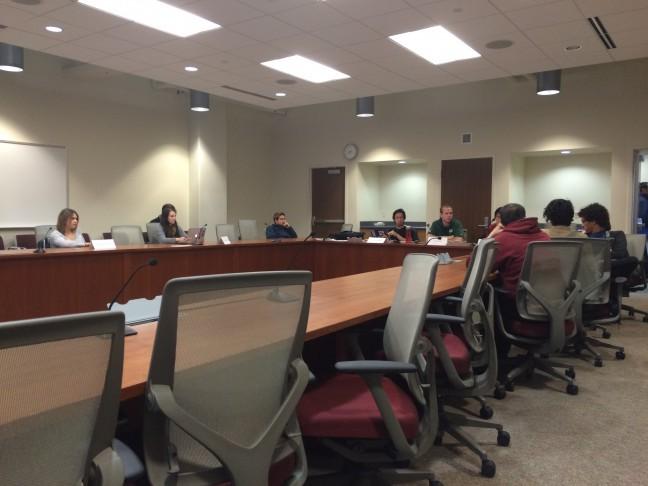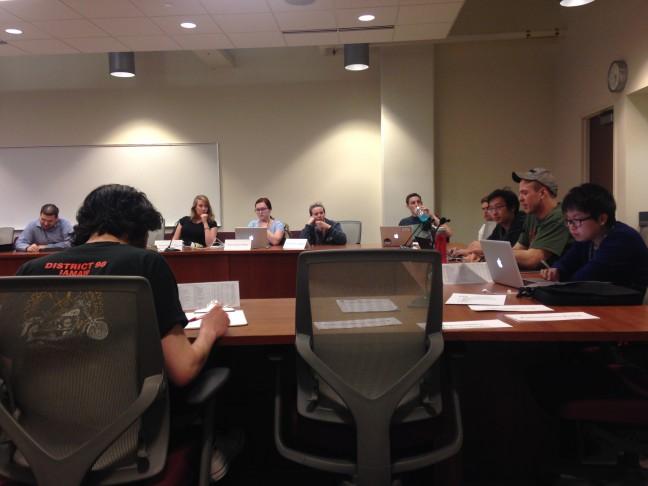
Whether two previously ousted student government representatives received the votes necessary to legally regain their seats last week could hinge on the interpretation of a provision in the student government’s constitution.
While rules on voting for new legislation and other appointments call for a two-thirds majority by Student Council, some student government experts are questioning whether the constitutional provision that calls for a two-thirds vote by the entire council means Beth Huang and Niko Magallon were appointed illegally.
According to Article VII, Section 4 of the Associated Students of Madison constitution, “The [Student Council] shall by two-thirds vote of the entire SC, excluding vacancies, fill vacancies in the SC with an ASM member of the same academic unit.”
In the Student Council’s Nov. 2 meeting, Huang and Magallon, who were previously removed from their seats for elections violations, came before the council for approval as the result of the Nomination Board’s internal processes.
They were approved by representatives by a vote of 15 votes “yes,” seven “no” votes and four abstentions, and given the oath of office immediately after. They participated as voting members of council for the remainder of the meeting.
Because 15 affirmative votes do not constitute two-thirds of the 30 full members of Student Council, some are questioning whether Huang and Magallon netted the majority support needed to regain their seats.
Former ASM Chair Brandon Williams said the constitutional provision goes above and beyond the bylaws in this area and the requirement that nominees have to achieve two-thirds of the total number on Student Council represents a purposefully higher threshold than the normal majority of voting members present.
Williams said in this situation, the four abstentions from the vote would effectively count as ‘no’ votes because they do not go toward achieving the two-thirds majority in favor of approving the candidates.
While Williams said the action was likely not a case of malfeasance, representatives need to examine the issue.
“They need to address this issue immediately and need to make sure they [were] put on council in the proper procedure,” he said. “It raises serious questions, and if that’s the case, they will need to go back and look at the votes from last week.”
Current ASM Chair Allie Gardner maintains the vote to appoint the two representatives is no different than any other vote by the body and, therefore, Huang and Magallon were legally confirmed according to ASM procedures.
She said abstentions are always excluded in any final vote count, so the 15 votes in favor and four against in last Wednesday’s meeting met the same majority required for other votes in council.
“We were following the process by filling vacancies through Nominations Board, the same as we always have for appointments,” Gardner said. “We did get two-thirds of the full council. … As soon as they were sworn in officials, they had voting rights.”
Student Judiciary Chief Justice Kathryn Fifield said student justices could not comment on the actions of council or interpretations of the ASM constitution outside of official hearings.
She also said if an individual wanted the judicial branch of ASM to comment on the interpretation, a formal complaint would have to be filed. Fifield added she was unaware of a precedent set by an earlier ruling on the interpretation of the provision on Student Council vacancies.
Rep. Tom Templeton said his interpretation of the constitution’s provision is that two-thirds of the entire council was needed, and the 15 votes in favor of the appointment do not satisfy that requirement.
He said the possible disparity in interpretations raises questions about the role the newly appointed representatives played in last week’s meeting and whether they should retain voting rights in today’s Student Council meeting.
“It raises questions on what all we voted on, as well as their voices in the debate, which could have influenced others’ votes and what the impact of the meeting was,” Templeton said.
He also said the framers of the constitution likely included the distinct wording as a safeguard to make sure every representative’s vote matters and to avoid any action that could appear as an act of “cronyism.”
Huang said the appointments were finalized in the same way “every single vote is finalized” when the chair announced the vote count and whether the measure passes or fails.
Correction: Due to a reporting error, the print version of the story states the vote to appoint Huang and Magallon as including seven abstentions and four ‘no’ votes. The vote actually included seven ‘no’ votes and four abstentions.










